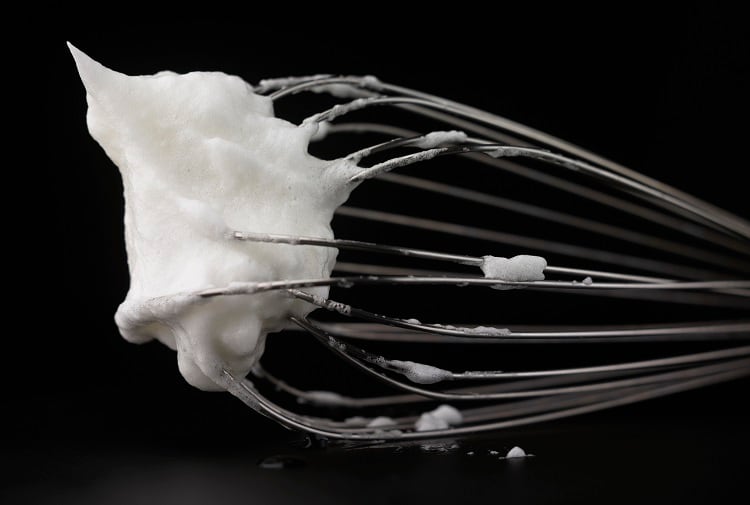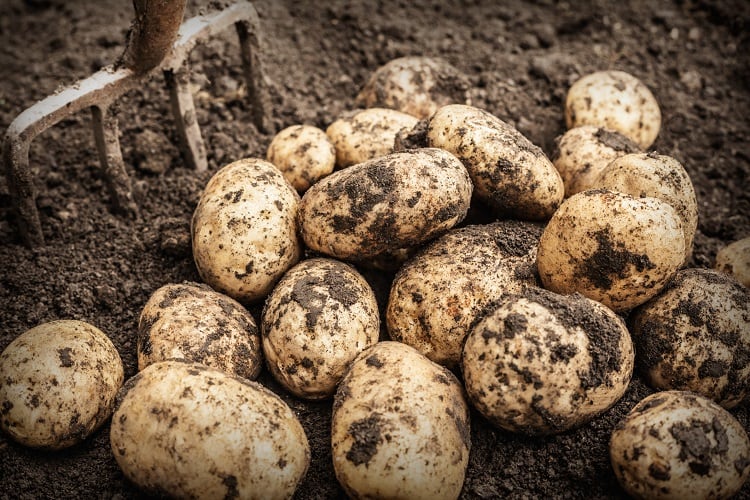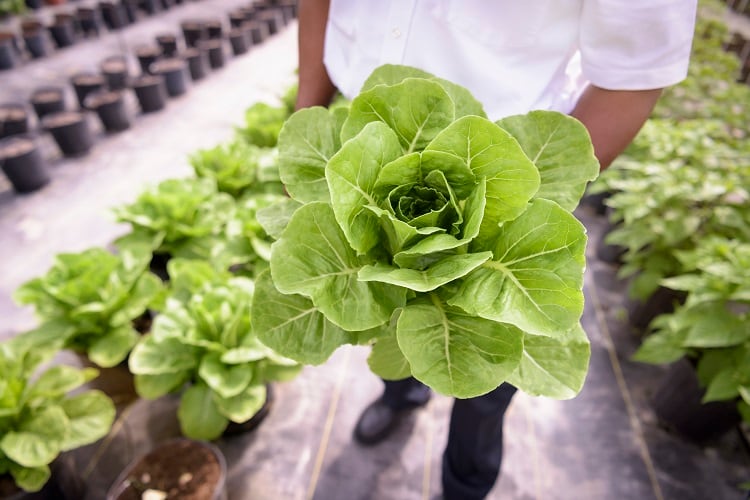In Hebrew, the name PoLoPo roughly translates as ‘here’ and ‘not here’. Co-founders Maya Sapir-Mir and Raya Liberman-Aloni, who have developed technology capable of producing egg protein (ovalbumin) in potatoes, find this fitting.
Growing ovalbumin in a tuber under the ground is a surprising concept: in agriculture as we know it, egg protein is traditionally ‘not here’. And yet, the start-up is indeed expressing ovalbumin from ‘here’. Hence, the PoLoPo name.
Sapir-Mir and Liberman-Aloni come to the start-up from plant biology backgrounds. “We both have PhDs and worked for many years expressing protein in plants. We believe plants can be a factory for good quality proteins, and a substitute for animal proteins,” Sapir-Mir explained.
This is of particular interest for the developing world. With global populations on the rise, demand for protein is set to soar. Animal-derived protein alone is predicted to double by 2050.
“We want to produce better food for the world and more proteins for the Third World,” Sapir-Mir told FoodNavigator. Molecular farming technology, the co-founder stressed, presents a ‘huge’ opportunity to do so.
The humble spud
Molecular farming describes the production of biomolecules using plants, rather than bioreactors and fermentation technology.
In food, a small cohort of businesses are working to produce complex molecules for industry. Moolec Science, for example, is developing animal-free proteins in soy and pea crops. In Israel, Pigmentum is producing dairy protein, amongst other biomolecules, in lettuce.
PoLoPo, on the other hand, is taking a different approach: “The first plant we want to work on is the potato,” Liberman-Aloni explained. “It’s a very cheap and resilient crop that, with our technology, can accumulate high amounts of protein.
“In its natural form, potatoes consist mostly of water and starch, which leaves room for our desired protein: ovalbumin.”
It should be noted that the start-up will be expressing protein in the potato itself, a ‘sink organ’ underground tuber, rather than its leaves.
The start-up does not expect the protein production to impact how the potato looks, although it does have the potential to affect its taste. But in the short-term, its taste profile is not relevant: the potato simply acts as the protein ‘carrier’.
“We are working on an extraction method we expect to be much simpler [than extracting from leaves and seeds] because we don’t have to get rid of chlorophyl, polyphenols and other metabolites.”
As potato is composed of approximately 80% water, once the protein is extracted, the dehydrated by-product can be used as starch for other industries.
First up: egg white protein
Ovalbumin is the main protein found in egg white (albumin), making up approximately 55% of the total protein. In the B2B food ingredients market, albumin is big business. The functional egg protein helps food makers bind, emulsify, and foam their products – from pancakes to meringue and ice cream.
According to Fortune Business Insights, the global albumin market size was valued at $4.29bn in 2018 and is forecast to reach $6.77bn by 2026 with a CAGR of 6%.
PoLoPo plans to sell its egg-free ovalbumin protein ingredient to the food industry. The ingredient it produces is bio-identical to the real thing, we were told, meaning that food manufacturers using egg protein powder today ‘won’t have to change anything’ in production.

Ovalbumin protein is the first product PoLoPo wants to bring to market. However, according to the start-up founders, ovalbumin is ‘just the beginning’. “We also believe we have another product: a high-protein potato. Potato protein is highly commercial and has a lot of functionality, similar to ovalbumin,” Liberman-Aloni explained.
Further down the line, the start-up sees ‘huge’ potential in developing high-protein potatoes. Being bioengineered, regulatory authorities and consumer acceptance would have to be on their side, but PoLoPo has its eyes on developing countries with low protein diets.
“They’re already cultivating potatoes, yet their diet is insufficient in protein. They could grow these [high protein] potatoes [to overcome dietary insufficiencies].”
PoLoPo also sees potential in expressing other animal-free proteins in its potato-based platform for commercialisation down the line.
Global expansion
While the start-up may face regulatory challenges down the line if it seeks to commercialise the entire bioengineered potato, in the short-term the co-founders stressed the egg protein itself is non-GMO.
“It’s a derivative and we’re working on an extraction method which will clear up all DNA leftovers to be under the regulatory detection level. The plant is GMO, but the protein is not,” explained Liberman-Aloni.
PoLoPo is investigating the regulatory landscape for molecular farming-derived proteins with its eyes initially on the US market.
The US is also well-suited to potato cultivation. “It’s a huge market, they have so many fields of potatoes. So we believe this will be the first market to enter on the production side, as well as for extraction. At the same time, a lot of big food manufacturers are there to sell them.”
Concerning its high-protein potato ingredient, the start-up will also investigate market entry in other regions with less stringent GMO regulations. “It’s easier there,” said Sapir-Mir. “Of course, we will also get to Europe and other countries, but currently consumers are more concerned about bioengineering in those regions.”
PoLoPo is predicting change, however. Given growing population numbers and limited natural resources, the start-up believe genetic modification is an inevitability.
“We don’t have any other option. We won’t be able to feed growing populations, we’ll have to use bioengineered plants.”

By this time next year, PoLoPo expects to have ‘good functional samples’ of its potato-expressed proteins for the food industry. Working with potatoes, which can be efficiently grown in a field, is promising in terms of scalability, the co-founders suggested.
“We promise, it’s going to be huge.”




